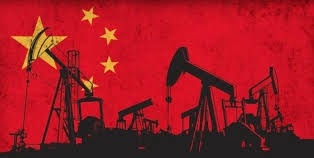 China, as the second-largest economy in the world, has been a regular customer of Iran’s petrochemical commodities alongside crude oil. Every time the sanctions against Iran increased, Iran became more specific to the Chinese oil market.
China, as the second-largest economy in the world, has been a regular customer of Iran’s petrochemical commodities alongside crude oil. Every time the sanctions against Iran increased, Iran became more specific to the Chinese oil market.
The ICIS website reports on the status of exports of methanol and polyethylene products, which you can read below.
Before 2015, and the signing of “JCOPA” deal, China has imported a massive amount of methanol and polyethylene alongside its crude oil supply from Iran, with a crucial difference between crude oil and these petrochemical products, i.e, the potential for a practical surplus replacement of crude oil easily exist by Russian production of the same amount. An easy supply rather than others.
In 2017, China has imported about 31 million tons of crude oil from Iran, accounting for about 7.5% of the country’s crude oil imports, and due to rivals who are willing to increase their sales volumes, it is not a hard decision for China to stop or reduce Iran’s crude oil imports. Along with the existence of alternative exporters, China’s refineries now have more capacity to supply than the country’s oil demand, which is also a strong point for China. This will not have a dramatic impact on Chinese imports at the absence of other suppliers.
But in terms of petrochemical products, the senario is different. The US-China trade war on economic tariffs could, if successful, be in the interest of Iran. Before the economic war, China imported about 600,000 tons of polyethylene from the United States and was supposed to increase this mount up to 2 million tons by 2020. But with the current situation, the United States will definitely not get this market and the role of regional countries such as Iran will be particularly visible. In 2017, Iran exported about 2 million tons of polyethylene to China, accounting for about 17 percent of the country’s total imports, and it certainly will not replace it in the short and medium term. (At least until 2022)
In addition to PE, in the year 2017, about 2.5m tonnes of methanol was exported to China, and due to its competitive price in the Middle East and the country’s export capacity, it also faces a similar situation like polyethylene.












